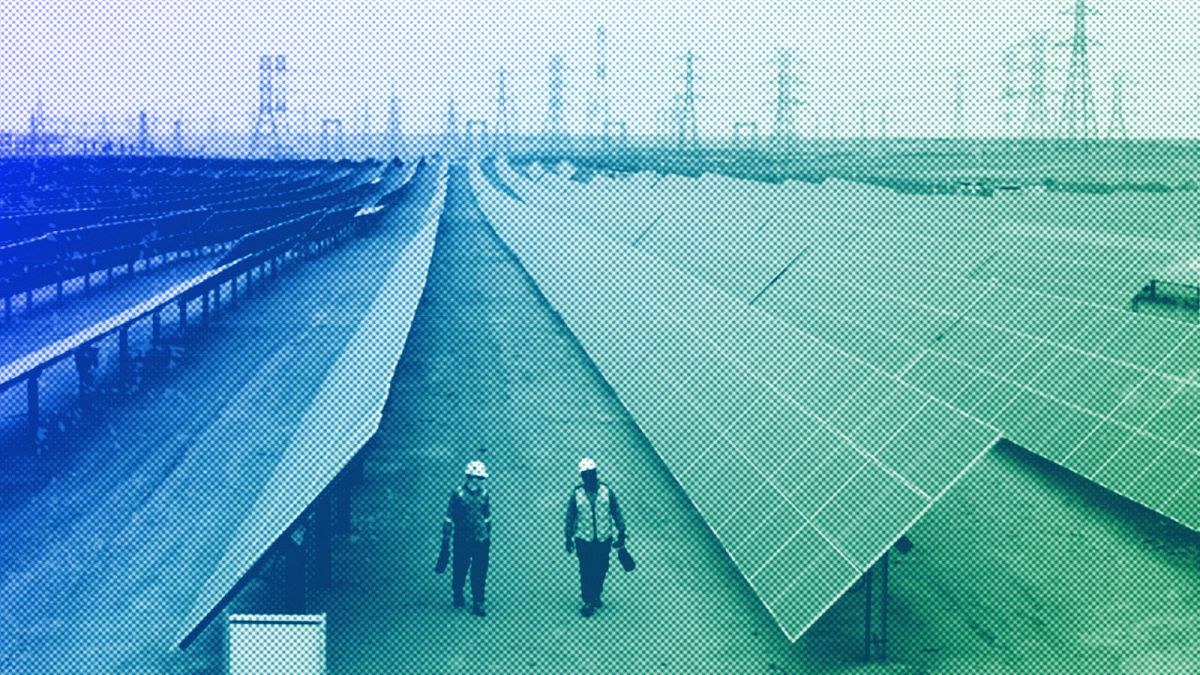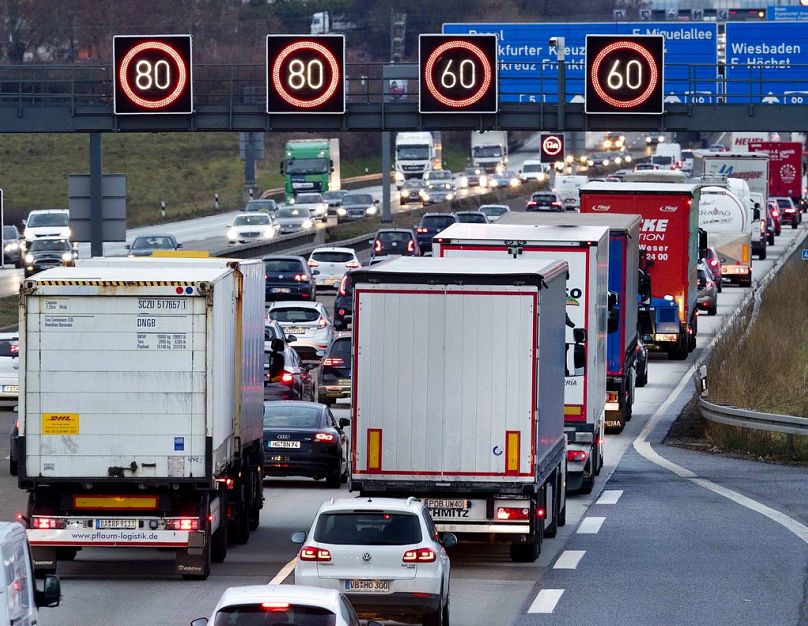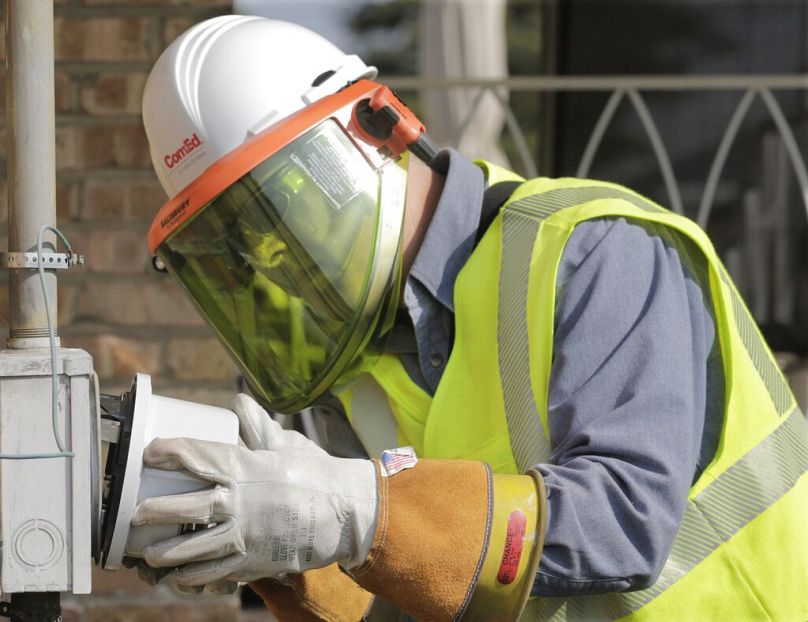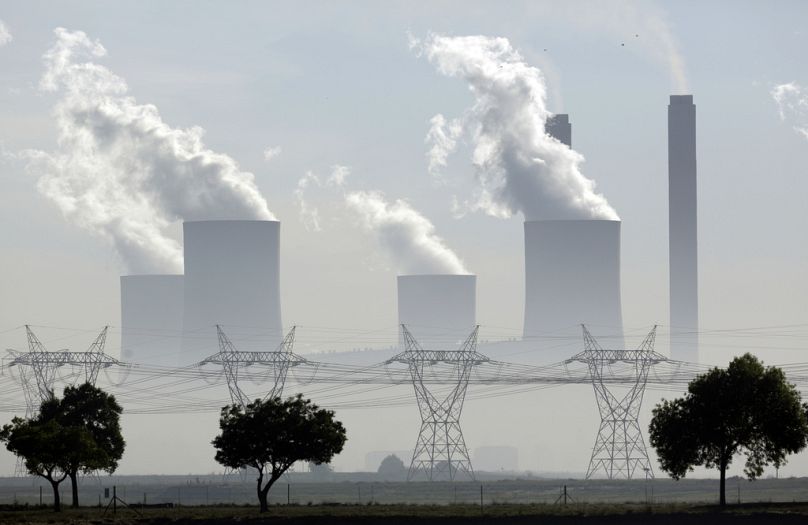Governments worldwide must put consumer empowerment into national energy plans, in a fair and inclusive manner, and help them understand how to benefit from clean energy consumption, Damilola Ogunbiyi writes.
In the race against climate change, the move to carbon-free energy has taken centre stage. To ensure everyone benefits from fair and affordable clean energy, people power must be at the heart of this transition.
Everywhere today, consumers face unprecedented price pressures caused by our continued dependence on fossil fuels.
Tackling the climate crisis by enabling affordable clean energy is now more important than ever. The technology exists to put people in direct control of their energy, helping cut their costs and carbon emissions.
Yet what is still needed is the political will of global leaders to empower consumers to drive this transition.
People have the right to know
Nearly 3 in 4 people in Europe, North America, and Asia Pacific are concerned about climate change. However, only half understand the actions and investments they can make to facilitate change.
The global average energy-related carbon footprint is almost five tonnes of CO2 per person — the equivalent of two round-trip flights between Singapore and New York, or driving an average SUV for 18 months. This is a huge untapped potential for positive climate action.
To enable citizens to act, they need information on how they can best reduce emissions and cut costs; high-quality data about their energy consumption to help change behaviour; and policies designed to help them participate in and benefit from clean energy systems.
The demand for this is clear. Almost 50% of people say they could reduce their energy consumption with the right information and financial support — and the impact is already being proven.
To give one example: in Malaysia, the leading utility gave home energy reports to 450,000 consumers with simple and actionable consumption data, resulting in a 3% average reduction in household energy demand without needing new technology or government incentives.
It is a matter of access
With the right guidance, people are able to adopt energy-saving practices, cut their costs and reduce their carbon emissions.
However, only the European Union and Australia mandate such consumer access to energy data. This simple action by governments would make a massive positive impact – without cost.
The next step is to provide granular data about energy consumption to every household. When consumers have access to real-time insights on their energy usage, evidence shows they understand their environmental impact better and make conscious choices to reduce it — again, cutting costs and emissions.
The technology already exists. Smart metres equipped with real-time data monitoring provide consumers with detailed insights into their energy use.
More importantly, they enable dynamic pricing, allowing consumers to take advantage of cheaper and cleaner electricity at different times of day.
Advanced economies such as China and the US are leading the way, with almost 100% and 70% of consumers using smart metres. Yet, this has not translated to developing economies, with only 3% of homes in Latin America or 2% in India having access to them.
Progress is happening, but far more needs to be done to invest in smart metre rollouts for those who could benefit the most.
Those usually on the sidelines could finally take control
Putting the consumer at the heart of the clean energy transition gives every person a stake and opportunity to benefit, increasing social support and accelerating the decarbonisation of our energy systems.
Making this a reality needs more than information and technology. Policies and incentives such as tax breaks, subsidies, and rewards for adopting renewable technologies, combined with innovative business models, are needed to give people greater access to clean energy, especially in developing economies.
The Rwanda Cooling Initiative’s Green On-wage financing mechanism is one example of a new business model which puts people in the driver’s seat.
Consumers can take out interest-free loans, repaid through salaries, to purchase energy-efficient cooling technology, lowering the risk and cost of financing.
By doing so, people who would otherwise be left on the sidelines are able to take control of their energy use, benefit from cheaper, cleaner energy and participate in the fight against climate change.
A system that's fair and just for all
The climate crisis is an undeniable reality that demands immediate attention and collective action. We must urgently move away from fossil fuels to build a healthier and cleaner future for citizens everywhere.
By empowering people to adopt energy-efficient practices and make informed choices about energy consumption, we can make a substantial positive impact on the transition to accessible and affordable 24/7 carbon-free energy in a way that is fair and just for all.
To make this happen, governments worldwide must put consumer empowerment into national energy plans, in a fair and inclusive manner, and help them understand how to benefit from clean energy consumption.
However, citizens alone taking action is not enough. To make the change at the scale and pace we need, governments worldwide must be bold and commit to achieving 24/7 carbon-free energy.
Unlocking the benefits requires the right regulatory frameworks, investment in renewables and grid infrastructure, and commitment to phase out fossil fuels.
There is no time to waste. We must act now, and act together, to make clean energy work for all.
Damilola Ogunbiyi is CEO and Special Representative of the UN Secretary-General for Sustainable Energy for All and Co-Chair of UN-Energy.
At Euronews, we believe all views matter. Contact us at view@euronews.com to send pitches or submissions and be part of the conversation.



